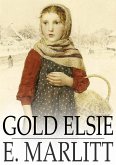In "Lady Sybil's Choice: A Tale of the Crusades," Emily Sarah Holt intricately weaves a narrative that captures the fervor and complexity of the medieval crusades, merging historical detail with vivid character development. Written in the late 19th century, Holt's prose reflects the Victorian era's penchant for romance intertwined with moral dilemmas, providing a rich tapestry of emotional and ethical conflict. The protagonist, Lady Sybil, faces an impossible choice between duty, love, and personal conviction amidst the backdrop of the tumultuous interactions between Christians and Muslims during this pivotal historical period. Emily Sarah Holt, an author of the Victiorian era, often drew inspiration from her deep fascination with history, especially the Middle Ages. Raised in a culture that romanticized chivalry and valor, her works frequently portray strong female characters navigating societal pressures. She sought to empower women through her storytelling, and "Lady Sybil's Choice" exemplifies this as it explores themes of agency, loyalty, and the implications of war on personal identity. I highly recommend "Lady Sybil's Choice" to readers interested in historical fiction that transcends mere romance. Holt'Äôs nuanced portrayal of a woman faced with challenging decisions amidst historical turmoil offers profound insights into human nature, making this an essential read for both enthusiasts of medieval history and those seeking relatable narratives of strength and resilience.
Dieser Download kann aus rechtlichen Gründen nur mit Rechnungsadresse in A, B, BG, CY, CZ, D, DK, EW, E, FIN, F, GR, H, IRL, I, LT, L, LR, M, NL, PL, P, R, S, SLO, SK ausgeliefert werden.









